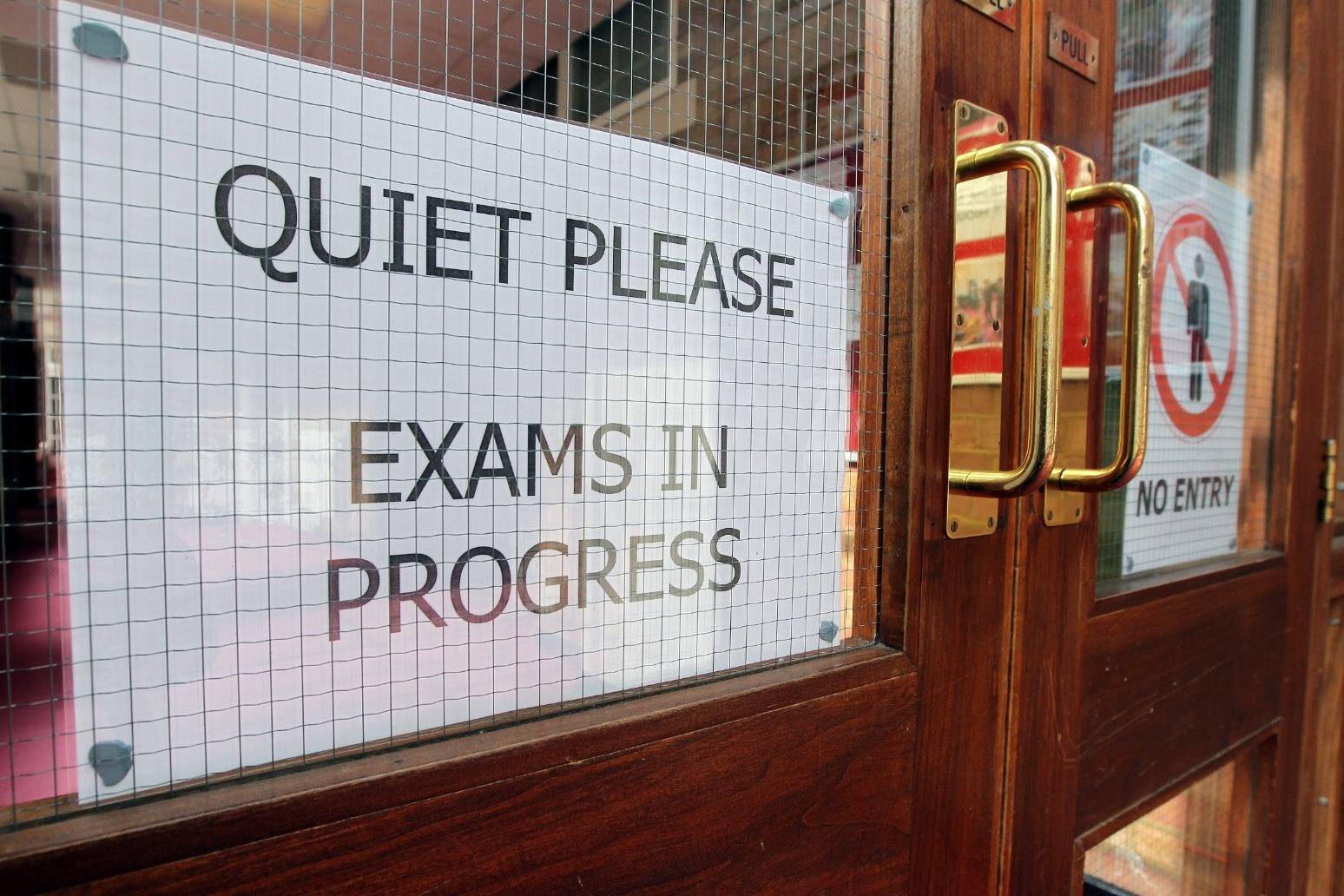
The Government has said the number of and A* and A grades awarded in England should fall back to pre-pandemic levels as exams return to normal.
However, an education expert predicts they are unlikely to fall back to 2019 levels because teachers developed a “taste for awarding top grades” in some subjects during the pandemic which markers will be “reluctant to relinquish”.
Professor Alan Smithers, director of the Centre for Education and Employment Research at the University of Buckingham, suggested 59,154 fewer A* grades and 35,505 fewer A grades will be awarded to sixth-formers this year compared with last year.
The professor predicts around 10% of grades will be an A* and around 27.5% will be an A this year, compared with 14.6% of last year’s grades being an A* and 36.4% being an A.
In 2019 7.8% of grades were an A* and 25.5% were an A.
Prof Smithers expects the number of top grades to fall significantly but not by quite as much as the Government requested, as was the case last year.
He said: “Teacher assessment has given subjective subjects a taste for awarding top grades, which they will be reluctant to relinquish.
“There are many who would welcome slower progress including lots of parents who are worried that their sons and daughters will miss out on university places that would have been open to them last year or the year before.
“During the teacher assessment years many students and their parents will have developed unreasonable expectations.
“Whatever the extent to which top grades are brought down this year, the drop will lead to a lot of disappointment and probably a huge increase in the number of appeals.”
Prof Smithers also said disruption from teacher strikes may have led exam boards to be more lenient.
He said the percentage of top grades in performing arts and practical subjects rose sharply during the pandemic years when grades were based on teacher assessments.
That figure rose less steeply for science and maths because pupils studying those subjects were already getting more top grades before the pandemic.
However, last year more top grades were awarded for music and performing arts than physics and chemistry despite the return of exams, suggesting a “profound change” has taken place which may make it more difficult to cut the number of top grades awarded back to 2019 levels.
This trend led to girls receiving far more A* grades than boys, who had previously had the edge because far more of them studied subjects where pupils can “manifestly amass right answers.”
If more A* grades continue to be awarded for arts and humanities than before the pandemic, this could mean boys do not regain their lead.
Prof Smithers said he expects pupils in Northern Ireland to get the best results, as they have done for many years, followed by those in Wales then England.
In Wales and Northern Ireland pupils will still have some idea of the questions they will be asked, as was the case for pupils in England last year.
This could also make it more difficult to bring grades down across the UK.
Figures reveal maths was the most popular A-level subject this year while English came fourth behind biology and psychology.
Fewer pupils than ever are studying a foreign language at A-level with entries for French being a quarter of their 1992 level and take-up of German falling to a fifth of its level that year.
Spanish has overtaken French in popularity in recent years while German has become the least popular of all 30 A-level subjects.
Biology and chemistry are more popular now than in 1992 with physics having returned to around that year’s take-up following a slump and subsequent rise in popularity.
Social sciences have burgeoned in popularity with psychology being the third most-studied subject and sociology being in fifth place.
Double the number of pupils are studying politics than in 2001, which Prof Smithers suggested could be because it is “now constantly in the spotlight”, while economics is almost as popular as it was in 1992 having recovered from a large slump in take-up.
He added that the growth of social sciences “has coincided with universities becoming known as hotbeds of activism and wokery.”
A Department for Education spokesperson said: “This year GCSE and A-level grading is largely returning to normal, in line with plans set out by Ofqual almost two years ago, to make sure qualifications maintain their value and students get the opportunities they deserve.
“This means national results are expected to be similar to those in pre-pandemic years, and a student should be just as likely to achieve a particular grade this year as they would have been before the pandemic.
“The number of top grades also has no bearing on the number of university places available.”
A spokeswoman for Ofqual, which regulates exams, said: “This year we expect exam grades to go back to similar levels to 2019, which was the last year before the pandemic.
“This is part of a planned two-year programme of returning exams to normal.
“Because of the disruption students have faced there are still grade protections in place which mean a student will be just as likely to achieve a particular grade this year as they would have been before the pandemic.”
Published: by Radio NewsHub








